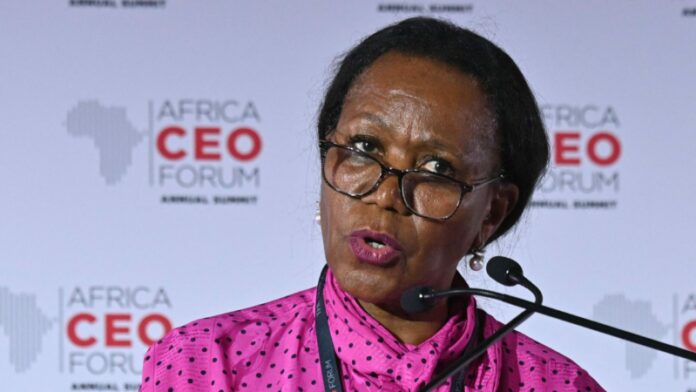
THE Minerals Council defended a letter asking for the resignation of Transnet CEO Portia Derby in December, saying decisions of this order had the mandate of the organisation’s members.
“Something like this has got to be approved by the board and office bearers,” said Allan Seccombe, spokesman for the Minerals Council which has 77 members representing 90% of South Africa’s production in 2022.
“This call for the removal of the few female corporate leaders is more than just a misrepresentation of us as member, but goes against the ethos for which we stand,” Daphne Mashile-Nkosi, chairwoman of Kalagadi Manganese wrote in a letter seen by the publication.
Instead of pushing for management change, the Minerals Council and Transnet subsequently decided to establish “collaborative structures” aimed at improving the efficiency of Transnet. Transnet, a state-owned company, freights South Africa’s minerals, including coal and manganese, to export handling facilities in Richards Bay, Durban and Saldanha Bay, among others.
In its letter, the Minerals Council said Derby should resign because she could not “resolve the crisis” and they were not “capable of turning around performance” at Transnet. “We are insisting on the critical need for urgent change,” the council said in the letter.
Richards Bay Coal Terminal, a privately-owned company, said it had received 50.43 million tons of coal in 2022, the lowest level in 30 years. The Minerals Council later said the decline in coal exports represented R30bn in lost revenue, adding that the decline in performance was related to management rather than exogenous factors such as corruption.
“We know that only about 20% of the lost tonnages were due to cable theft and electricity disruptions on the coal rail corridor,” said the council’s chief economist, Henk Langenhoven. “The bulk of the explanation lies with inefficiencies on rail and in the ports,” he added.
Said Mashile-Nkosi in her letter: “We are therefore left with no option but to reconsider our membership of the Minerals Council SA. We, therefore, terminate our membership of the Minerals Council SA with immediate effect and trust that you find this in order”.










